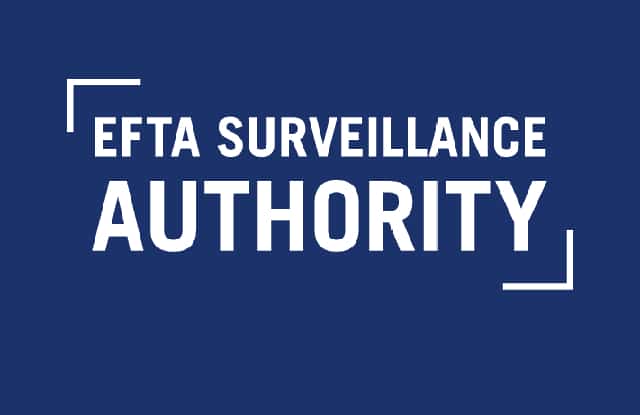State guarantees must be limited in duration and amount and the conditions for their mobilization must be defined in advance. Public funding to an operator in a closed sector does not affect trade and, therefore, does not constitute State aid. Introduction Large infrastructure projects are complex, encounter many unforeseen problems and often fall behind schedule for years. Consider, for […]
State Aid Law
Blog
State Aid Uncovered Blog
In Lexxion’s State Aid Uncovered blog, Prof. Phedon Nicolaides publishes weekly critical analyses of recent State aid judgments and decisions. Each post presents the key points of a court judgment or EU Commission decision, places it in the context of similar case law or practice, assesses the underlying reasoning and highlights any inconsistencies or contradictions.
Guest contributions from other State aid experts will also be published on the blog at irregular intervals to complement the content of the blog posts.
- competition ×
21. December 2018 |
State Aid Uncovered
by Phedon Nicolaides
3. April 2018 |
State Aid Uncovered
by Phedon Nicolaides
A price below the regulated normal price confers an advantage. Competition is distorted even when the aid recipient does not expand its operations. Introduction An undertaking can obtain an advantage without receiving an outright grant. The advantage may be hidden in a contract for the supply of an essential input at reduced prices. This is the issue tackled by […]
27. September 2016 |
State Aid Uncovered
by Phedon Nicolaides
In the meaning of regional aid rules, diversification in a “new activity” is not the same as diversification in a “new product”. A “new process innovation” must be different, in the sense of being distinct from an existing process, must be substantial, in the sense that it covers the whole production process and must be new, in the sense that […]
22. June 2016 |
Guest State Aid Blog
by Gian Marco Galletti
Today we are glad to welcome once again Gian Marco Galletti as guest author on our State aid blog. He is a PhD Candidate & EU Law Tutor at the Dickson Poon School of Law of King’s College London. In this blog post he comments on the Commission’s new Notice on the notion of State aid. Thank you for your […]
4. March 2016 |
Guest State Aid Blog
by G. Guðmundsson
We are happy to welcome two young professionals on the State Aid Blog today. Guðmundur Guðmundsson and Amie Eliassen are trainees at EFTA Surveillance Authority in the Competition and State Aid Directorate and give their insights on working in this dynamic and multicultural work environment. You want to apply for a traineeship yourself? Read on for more information. The […]
5. January 2016 |
State Aid Uncovered
by Phedon Nicolaides
An exception from a tax system is not selective if it is a priori open to any tax payer. Checks by tax authorities to ensure that a measure is applied correctly do not constitute exercise of administrative discretion that may render a measure de facto selective. The impact of a measure on trade and competition cannot be merely presumed just […]
9. June 2013 |
State Aid Uncovered
by Phedon Nicolaides
The European State Aid Law Institute is celebrating the eleventh anniversary of its annual conference. For the past decade a perennial issue in EStALI events but also in similar events organised by other institutions has been the complaint of national officials that the rules on state aid are too intrusive and that the European Commission attempts to exert too much […]
- competition ×
21. December 2018 |
State Aid Uncovered
by Phedon Nicolaides
State guarantees must be limited in duration and amount and the conditions for their mobilization must be defined in advance. Public funding to an operator in a closed sector does not affect trade and, therefore, does not constitute State aid. Introduction Large infrastructure projects are complex, encounter many unforeseen problems and often fall behind schedule for years. Consider, for […]
3. April 2018 |
State Aid Uncovered
by Phedon Nicolaides
A price below the regulated normal price confers an advantage. Competition is distorted even when the aid recipient does not expand its operations. Introduction An undertaking can obtain an advantage without receiving an outright grant. The advantage may be hidden in a contract for the supply of an essential input at reduced prices. This is the issue tackled by […]
27. September 2016 |
State Aid Uncovered
by Phedon Nicolaides
In the meaning of regional aid rules, diversification in a “new activity” is not the same as diversification in a “new product”. A “new process innovation” must be different, in the sense of being distinct from an existing process, must be substantial, in the sense that it covers the whole production process and must be new, in the sense that […]
22. June 2016 |
Guest State Aid Blog
by Gian Marco Galletti
Today we are glad to welcome once again Gian Marco Galletti as guest author on our State aid blog. He is a PhD Candidate & EU Law Tutor at the Dickson Poon School of Law of King’s College London. In this blog post he comments on the Commission’s new Notice on the notion of State aid. Thank you for your […]
4. March 2016 |
Guest State Aid Blog
by G. Guðmundsson
We are happy to welcome two young professionals on the State Aid Blog today. Guðmundur Guðmundsson and Amie Eliassen are trainees at EFTA Surveillance Authority in the Competition and State Aid Directorate and give their insights on working in this dynamic and multicultural work environment. You want to apply for a traineeship yourself? Read on for more information. The […]
5. January 2016 |
State Aid Uncovered
by Phedon Nicolaides
An exception from a tax system is not selective if it is a priori open to any tax payer. Checks by tax authorities to ensure that a measure is applied correctly do not constitute exercise of administrative discretion that may render a measure de facto selective. The impact of a measure on trade and competition cannot be merely presumed just […]
9. June 2013 |
State Aid Uncovered
by Phedon Nicolaides
The European State Aid Law Institute is celebrating the eleventh anniversary of its annual conference. For the past decade a perennial issue in EStALI events but also in similar events organised by other institutions has been the complaint of national officials that the rules on state aid are too intrusive and that the European Commission attempts to exert too much […]
- competition ×
21. December 2018 |
State Aid Uncovered
by Phedon Nicolaides
State guarantees must be limited in duration and amount and the conditions for their mobilization must be defined in advance. Public funding to an operator in a closed sector does not affect trade and, therefore, does not constitute State aid. Introduction Large infrastructure projects are complex, encounter many unforeseen problems and often fall behind schedule for years. Consider, for […]
3. April 2018 |
State Aid Uncovered
by Phedon Nicolaides
A price below the regulated normal price confers an advantage. Competition is distorted even when the aid recipient does not expand its operations. Introduction An undertaking can obtain an advantage without receiving an outright grant. The advantage may be hidden in a contract for the supply of an essential input at reduced prices. This is the issue tackled by […]
27. September 2016 |
State Aid Uncovered
by Phedon Nicolaides
In the meaning of regional aid rules, diversification in a “new activity” is not the same as diversification in a “new product”. A “new process innovation” must be different, in the sense of being distinct from an existing process, must be substantial, in the sense that it covers the whole production process and must be new, in the sense that […]
22. June 2016 |
Guest State Aid Blog
by Gian Marco Galletti
Today we are glad to welcome once again Gian Marco Galletti as guest author on our State aid blog. He is a PhD Candidate & EU Law Tutor at the Dickson Poon School of Law of King’s College London. In this blog post he comments on the Commission’s new Notice on the notion of State aid. Thank you for your […]
4. March 2016 |
Guest State Aid Blog
by G. Guðmundsson
We are happy to welcome two young professionals on the State Aid Blog today. Guðmundur Guðmundsson and Amie Eliassen are trainees at EFTA Surveillance Authority in the Competition and State Aid Directorate and give their insights on working in this dynamic and multicultural work environment. You want to apply for a traineeship yourself? Read on for more information. The […]
5. January 2016 |
State Aid Uncovered
by Phedon Nicolaides
An exception from a tax system is not selective if it is a priori open to any tax payer. Checks by tax authorities to ensure that a measure is applied correctly do not constitute exercise of administrative discretion that may render a measure de facto selective. The impact of a measure on trade and competition cannot be merely presumed just […]
9. June 2013 |
State Aid Uncovered
by Phedon Nicolaides
The European State Aid Law Institute is celebrating the eleventh anniversary of its annual conference. For the past decade a perennial issue in EStALI events but also in similar events organised by other institutions has been the complaint of national officials that the rules on state aid are too intrusive and that the European Commission attempts to exert too much […]










